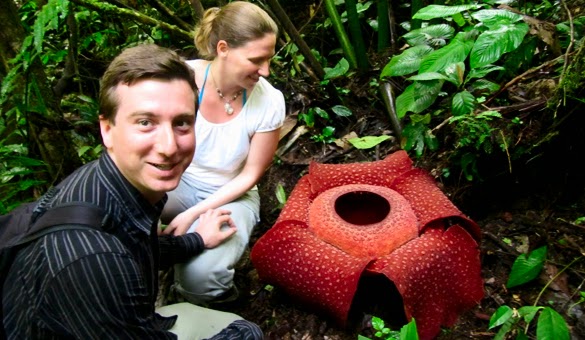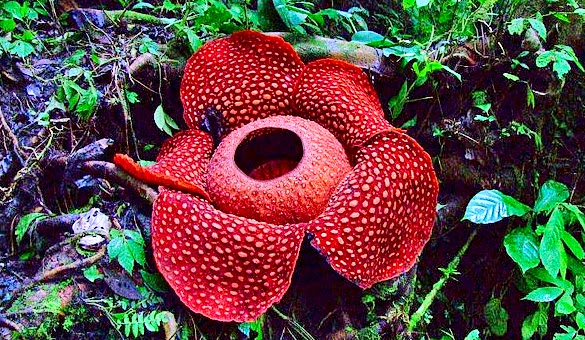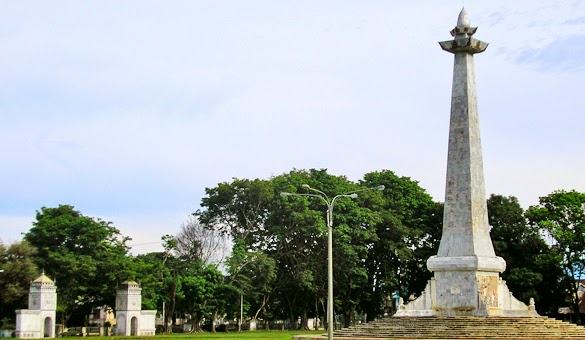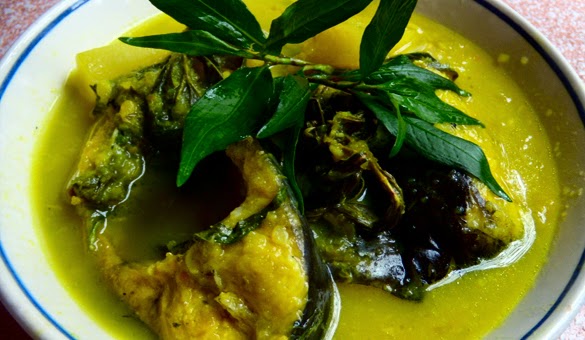 Visiting Bengkulu to See The Largest Flower in The World ---The capital of Bengkulu Province is the coastal city formerly known as Bencoolen. It was the site of Sir Stamford Raffles first entrry into Indonesia and there are still remains of British influence in the area. The primary crops of the area are pepper, coffee, nutmeg and sugar cane.
Visiting Bengkulu to See The Largest Flower in The World ---The capital of Bengkulu Province is the coastal city formerly known as Bencoolen. It was the site of Sir Stamford Raffles first entrry into Indonesia and there are still remains of British influence in the area. The primary crops of the area are pepper, coffee, nutmeg and sugar cane.The most fascinating nature charms are the exotic Rafflesia Arnoldi. Dubbed the largest flower in the world, it's actually a parasite luring insects into it by emitting rotten odor. Most inhabitants here are Malay and the culture and habits are somewhat similar to neighboring provinces.

The History of Bengkulu
Apparently not much is known about Bengkulu's past, save from the fact that it used to consist of small kingdoms. It developed its own script called ka-ga-nga. Majapahit seemed to take Bengkulu into its wings but after this mighty kingdom fell, Bengkulu was left to its own devices until the British came and take over. The British wanted to monopolize the pepper, grown abundant here, but constant attacks of malaria and boredom made them think that Bencoolen, like they preferred to call it, was not that promising.
When Sir Thomas Stamford Raffles arrived in 1818 as the British ruler, he somehow managed to turn Bengkulu into a success. He made the best of pepper trade, and he also make them grow coffee, nutmeg and sugar cane here. Bengkulu is also well-known as the exile place of Indonesia's first president, Sukarno, in 1938-1941.

Entry Points to Bengkulu
Bengkulu Province is easily accessible by land, air and sea transportation. You can catch regular buses directly from Medan, Padang or Jakarta. Flight arrives there times a day. Domestic ships from Jakarta, Padang and Medan stop by in Baai Harbor, Bengkulu.
Bengkulu Various Cuisines
Like other provinces in Indonesia, Bengkulu has its own specific cuisine for which it is renowned, among which are pendap, gulai tempoyak, and bagar kambing. Pendap is a tasty sidedish wrapped in taro leaf, containing fresh fish, cooked in a bed of spices, consisting of garlic, galangale (a root resembling ginger, known in Indonesia as kencur) and chilli paste, then mixed with rasped young coconut meat. Wrapped in taro leaf, pendap is boiled for no less than 8 hours. Pendap is best eaten with steaming hot rice.

While gulai tempoyak, or more familiarly called tempoyak is a dish made of fermented fresh durians, then cooked with chilli paste and salt. Although tempoyak is also known in other parts of Indonesia, here in Bengkulu, tempoyak is mixed with shrimp, unlike fish used in other provinces. Since tempoyak has a strong smell, it is often not served as a sidedish but used as ingredient in other dishes.
Bagar kambing is goat meat, cooked in an array of spices including coriander, nutmeg, pepper, tamarind, galangale, garlic, chalots, chilli paste and fried rasped coconut. There is also the Bagar Hiu or shark’s meat that is cooked with the same ingredients and follows the same process.






